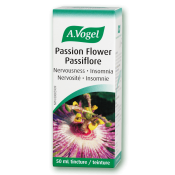Another way of looking at burnout in humans is to think of it like having a blown fuse or a tripped circuit breaker.
The scientific term for it is professional exhaustion. Just like that, your body gives up: one day, you can’t get up for work, or you’re driving down the street and you suddenly break down in tears. It’s the final phase of stress…
Burnout: Who can it affect?
The burnout phenomenon was first encountered and described among people working in the medical and social sectors—nurses, doctors, teachers—in the 1970s. Today, no profession is immune to it. In Canada, the most recent study by Morneau Shepell, published in 2015, reported that 58% of employees said that stress affected them negatively, 45% considered leaving their job because of stress, and 25% said that they had been sick because of work-related stress. According to Statistics Canada, six out of 10 workers said that work is their main source of stress.
Professional burnout seems to come crashing down like a storm out of the blue on a clear summer’s day, but there are in fact a number of warning signs. Professional exhaustion follows an extended period of stress. Oftentimes, the various symptoms aren’t considered as a whole, and so the precursors are underestimated. But the warning signs are clear.
Professional burnout: the first symptoms
- Your fatigue is persistent, even after a weekend’s rest or a vacation.
- You find yourself drinking or smoking more or turning to medications more often.
- You regularly have trouble falling asleep or you wake up during the night.
- You often suffer from headaches and stomachaches.
- You suffer from tension, stiff muscles or kinks in your neck.
These symptoms are signs your body is unable to keep up with the pace it’s running at. Stress is the body’s reaction to danger. But once the stress becomes ongoing, the body shuts down.
Professional burnout: the psychological symptoms
- You feel numb and you’re walking around like a zombie.
- You cry a lot.
- Even when the work day is over, you can’t get your mind off your job. You often brood and you worry about stuff when you’re at home.
- You’re irritable and not as effective at work as you used to be. You can’t concentrate, making decisions seems complicated and you’re easily overwhelmed by details. You experience sudden memory loss.
- You’re becoming cynical.
The right attitude for avoiding professional burnout
- Try to pinpoint the source of your stress. Understanding where your workplace stress originates is half the battle. Sometimes the problem is easy to solve, like delegating your work or talking to a co-worker.
- Learn to listen to your body. Take care of yourself. Take time to relax in a quiet setting. Once you do, you’ll find that you can tackle a lot of issues with a lot more serenity. Taking care of your health is also vital. Take up a sport or regular physical activity and eat a healthy diet. That way, you’ll have more energy. Taking a natural nutritional supplement such as St. John’s wort tablets can be useful, as it helps balance your emotions.
- Leave your work at work. Do you really need to take work home with you and read your e-mails at night? It’s really important to draw a clear line between your home life and your professional life. Not only will you get better faster, but you’ll also have more energy to tackle your work the next day.
- Don’t believe that you’re indispensable.
- Know when to turn off your smartphone and computer. Set clearly defined work and leisure times.
- Don’t cut off ties with friends and families.
It may seem trivial, but sticking to a healthy diet can work miracles in managing your stress. Focus on foods rich in potassium, zinc, magnesium and calcium, as well as vitamins B (especially B1, B6, B9 and B12) and C.
Some natural remedies containing passion flower or St. John’s wort can provide you with much-needed support as they help balance your emotions and also effectively counter stress by promoting relaxation. Whatever you do, avoid turning to energy drinks and foods rich in trans and saturated fats, which will only serve to increase your blood pressure.
Still can’t dig yourself out?
Talk to your supervisor or HR manager. Remember that workplace stress is something that employers are concerned about too. According to a number of studies, stress at work is a growing problem among employees. And stress leads to absenteeism, workplace accidents and high employee turnover, which are all big problems for employers. If your symptoms are so debilitating and interfering with your normal life, seek medical help.
Don’t be afraid to talk about it so you can find a solution.
Reference
http://www.morneaushepell.com/ca-en/insights/workplace-mental-health-priorities-report







